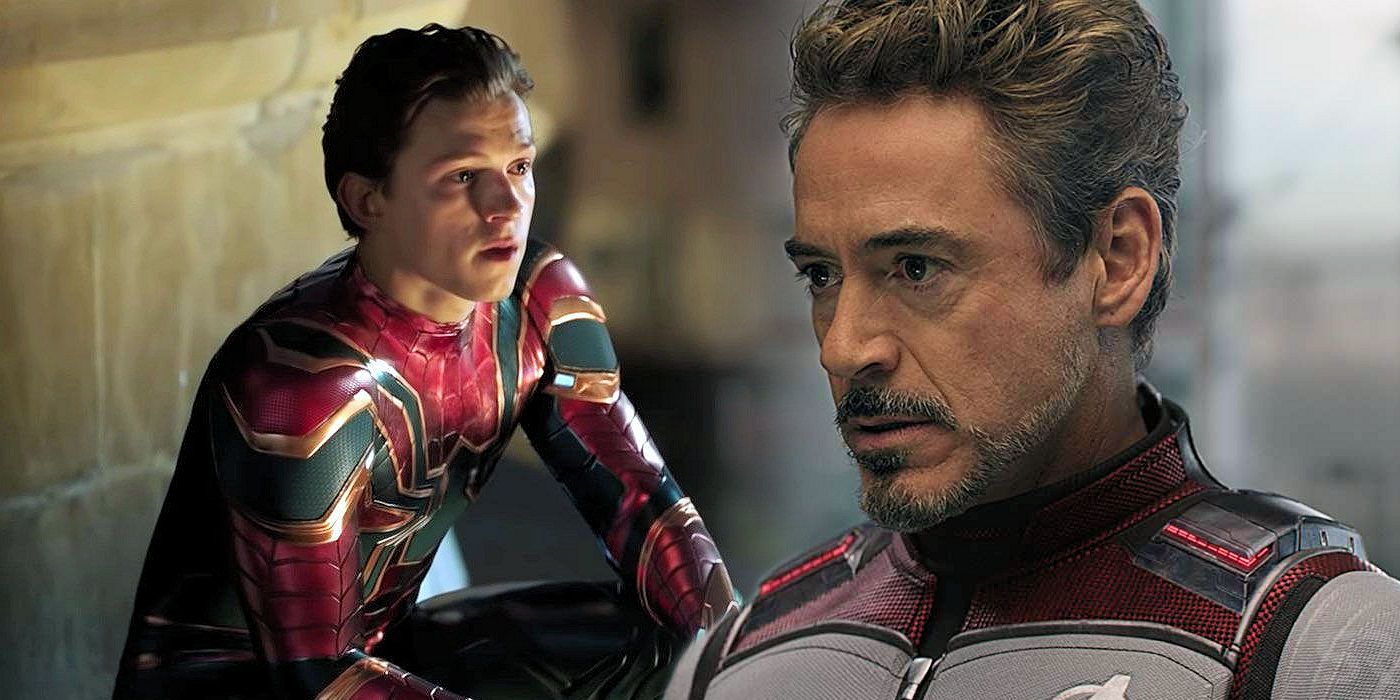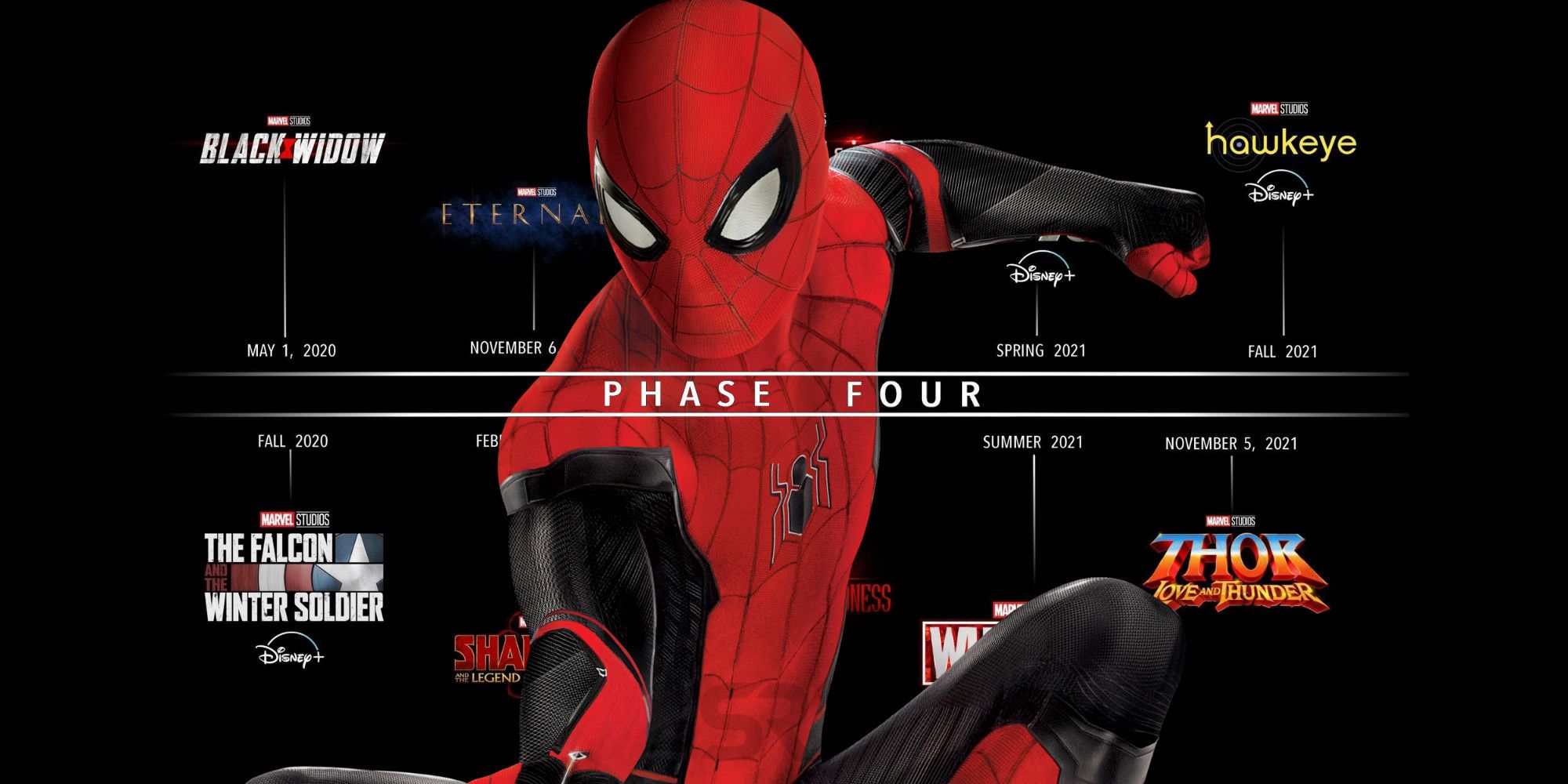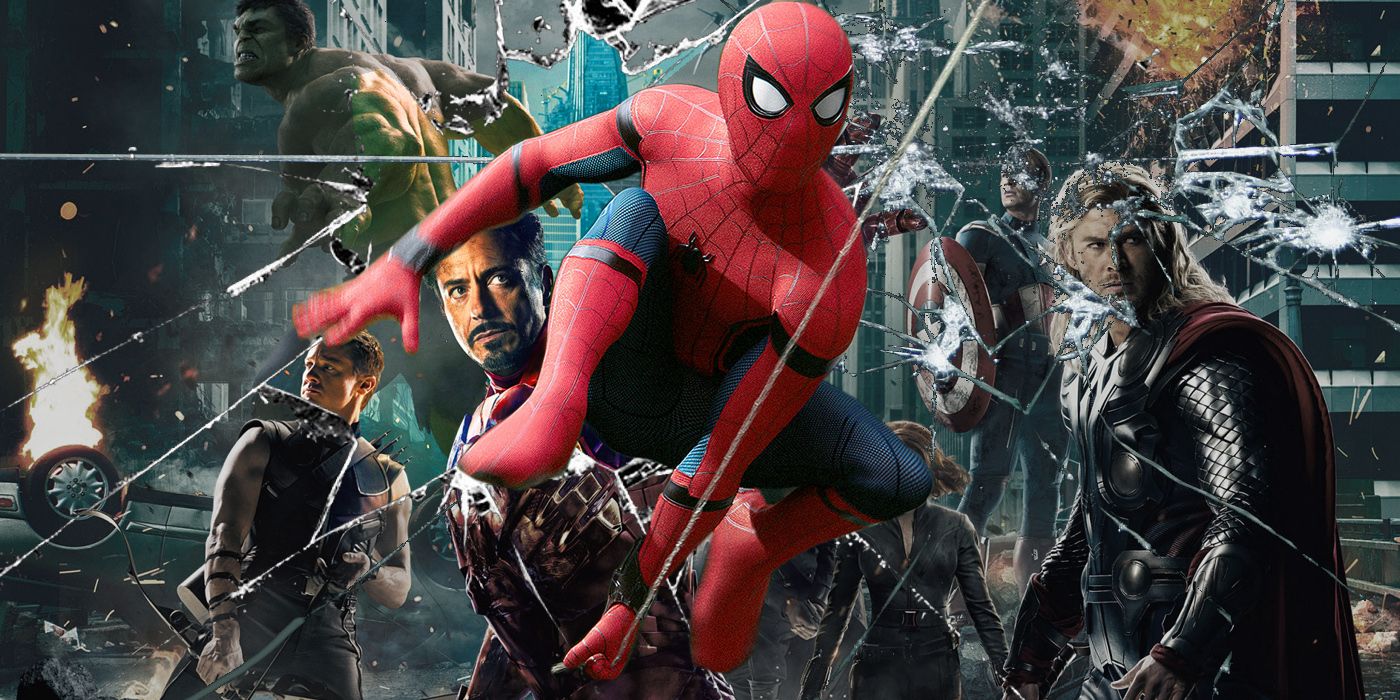Mere months after the MCU Spider-Man brought back to life in Avengers: Endgame, Peter Parker may not be feeling so good again: Marvel and Sony’s renegotiations of their deal to share the web-slinger on the big screen have broken down, leaving Spidey’s movie future uncertain.
On paper, this shouldn’t have happened. The beauty of the 2015 Spider-Man deal was its simplicity. Marvel and Sony weren’t co-funding any films and kept all the profits from the ones they worked on. With the boosts that putting the most merchandisable character in the MCU gave the former and the MCU connections gave a then-struggling latter, the net gains were pretty much proportional.
Five movies later and it appears both parties feel a little differently, leading to the threat of Spider-Man leaving Marvel Studios. Disney reportedly wanted a 50% budget/profit split, while Sony were keen to keep the situation as it was. Things have been complicated by Sony’s attempts to grow their own universes, with Venom‘s box office smash and Into the Spider-Verse‘s Oscar showing that they actually can be successful on their own.
Per the latest reports, the situation is in flux, with the severity of the rift being downplayed and the possibility of restarting talks raised. That would be a very good thing for all involved, not least Marvel. While many have played up how much the Sony brand has been rehabilitated by the MCU connection, the loss of Spider-Man could be disastrous for the Marvel Cinematic Universe going forward in both a story and production form.
Spider-Man Elevated MCU Phase 3 – Especially Iron Man

The Marvel Cinematic Universe’s Phase 3 is generally considered as a strong expansion for the series. There are debated missteps and unexpectedly divisive entries, but the overall diversification of the backdrops and characters has led to bigger stories, culminating in the record-besting Avengers two-parter. And while there were the legacy heroes of Steve Rogers, Tony Stark and Thor, not to mention new breakouts like T’Challa and Carol Danvers, what really brought it together was Spider-Man. Of the eleven films released over four years, Spidey appeared in five – Captain America: Civil War, Spider-Man: Homecoming, Avengers: Infinity War, Avengers: Endgame and Spider-Man: Far From Home – which together arguably form the five best films of the run (give or take a Black Panther).
His solo movies exemplify how to balance the conflicting intimacies and sprawl of shared-universe storytelling, making Peter Parker feel like he exists in an existing world while never losing sight of his personal journey. Homecoming is, without question, one of the best films in the MCU and, where Ant-Man and the Wasp struggled to provide a suitable palate cleanser after Infinity War, Far From Home was able to tell a tighter story in the shadow of Endgame without feeling trite or succumbing to excitement through reference. That said, even without the bigger picture connections, smart producing moves and Jon Watts’ direction could have delivered movies like that. It’s what Spider-Man gave the universe that’s so important.
Starting with Captain America: Civil War, Spider-Man began to affect the MCU’s founding hero. Tony Stark’s primary arc had ended in Iron Man 3, with his actions in Age of Ultron transitioning him towards a more antagonistic figure, but Spider-Man brought him back. Suddenly, there was a physical personification of his carelessness, someone who he had to care for and grow to be the father figure he never received. That weight of responsibility, compounded by Peter’s death in Avengers: Infinity War, was a major driving force through Endgame and towards Tony’s final snap. Morgan Stark may have loved Tony 3000, but it was Peter Parker who helped her father love back.
That almost didn’t happen Marvel announced Phase 3 – which included the two-part Avengers: Infinity War that – in 2014, months before the Spider-Man deal came to pass. It’s known that two versions of Captain America: Civil War were written – one with and one without the webhead – but those considerations are unlikely to have gone as far as the team-up. And, based on screenwriters Christopher Markus and Stephen McFeely discussion of Captain America’s arc, it’s likely a broad skeleton story for the characters were known, presumably including Tony Stark’s death. That means the entire arc gifted by Spider-Man was nonexistent, that Iron Man’s finale was locked yet missing what is now a key piece.
Much is made about how Marvel allegedly turned Spider-Man into Iron Lad, lumbering him with Tony Stark’s villains by proxy, and while it’s fair to bemoan how this more tech-inclined Spidey lacks the working-class scrap of the conventional version, it was clearly a two-way street. This was exemplified in Far From Home where threads leading back to the first Iron Man (right down to reuse of Jeff Bridges’ movie-winning “Tony Stark was able to build this in a cave… with a box of scraps“) led to the weirdest Spider-Man story yet.
Spider-Man Isn’t In Phase 4 (Yet), But He’s Very Important To The Future

One of the most striking absentees from Marvel’s Phase 4 announcement at SDCC 2019 was Spider-Man. While not every character or team is getting an outing in 2020 or 2021, most of those missing were namechecked at the end of the presentation by Kevin Feige – up to and including recent Fox acquisitions. This was only to be expected – the nature of the deal means that, as Sony films, Spider-Man entries don’t fall into the Disney release slate (Marvel Studios only produce).
However, that absence after four years in at least one movie appearance certainly stood out. Even if the MCU’s Spider-Man 3 were to get a speculated July 2021 release date, there’s limited room for crossover with other characters. Indeed, 2021 is instigating its own, massive multiverse stories, with WandaVision teeing up Scarlet Witch in Doctor Strange in the Multiverse of Madness and Endgame‘s alternate Loki Tesseracting his way into Thor: Love & Thunder. The targeting there could be seen as Marvel trying to make sure that, unlike with Infinity War and Endgame, a character owned by a competitor isn’t the emotional core of a story going forward.
But even if that’s the case, there’s no getting around how important Spider-Man is to the MCU now. Already Marvel’s most popular character (his merchandise sales, which Disney owns outright, eclipse that of even Batman), the final stages of The Infinity Saga positioned him as a core hero, the successor to Iron Man and the main character besides Thor with the most franchise appearances. Far From Home only emboldened that.
Beyond explicit promise, fan expectation is a fierce thing, no more so than with Spider-Man in the MCU. Far From Home ended on a double-whammy bombshell of J.K. Simmons’ return and Peter’s secret identity being revealed, Avengers Towers’ secret purchaser is theorized to be Norman Osborn, and many anticipate the Sinister Six, Miles Morales and more coming into the fold eventually. To suddenly lose all that promise, implicit or otherwise, is a major blow to a universe that – now it has the Fantastic Four and the X-Men – was almost looking to resemble the comic world outside your window.
Marvel Losing Spider-Man Shows Cracks In The MCU

The MCU has become the dominant movie franchise (three of the four biggest movies of the year come from Marvel Studios, with a total $5 billion gross) thanks to its sense of control, both of consistency to the mass appeal fun and how every movie serves a purpose in the bigger picture. Time and again, they’ve effortlessly proven dissenters wrong, making ensemble The Avengers a trend-setting hit, turning the Guardians of the Galaxy into household names and toppling Avatar‘s global box office record. This has got to a level of mythologizing. The MCU slate has at points stretched half-a-decade into the future (with years further in development behind-the-scenes), leading some to feel like Marvel’s ascent has been meticulously planned from the start.
The truth is, of course, not quite as impressive. Yes, Marvel’s able to tell a 22-movie story that, viewed on a macro-scale, loops back to its early days and ties up all its loose ends (most specifically with Captain America, who had the same writers throughout), but the cracks and hiccups are there. Each Phase 1 movie retconned what came before to the point only one post-credits scene makes sense (Iron Man 2‘s Mjolnir in Mexico tease), Phase 2 saw repeated conflicted creative visions, and Phase 3’s plan announcement so blatantly showed development changes Kevin Feige came to regret it. None of this is inherently bad – it mostly comes from prioritizing the movie at hand, and there’s been adjustments such as the disbanding of Marvel’s Creative Committee that have invariably improved things – but it all subtly highlights the precarious nature of the endeavor, that this is the product of an ever-changing industry.
In that light, Marvel losing Spider-Man provides the biggest crack in the MCU’s facade yet. It shows the character rights issues that they still struggle with (Marvel also doesn’t own solo distribution to Hulk and Namor, and only recently acquired X-Men and Fantastic Four) still exist, and that Sony – no matter how foolhardy – feel they don’t need Disney’s help to grow their biggest franchise. More clearly than with renaming Infinity War – Part 2 or Edgar Wright leaving Ant-Man, the fallibility of Marvel is clear.
It is, at this point, entirely possible that the reported collapse of the Spider-Man deal is merely part of Disney and/or Sony’s negotiations, with one party (likely the former) trying to use the audience reaction to the most extreme outcome to strengthen their side. It wouldn’t be the first time that internal discussions have gone public only for the situation to reverse (indeed, the Spider-Man deal only really began after the Sony email leak made early correspondence public), and most initial alarmist reports were followed up by “in talks” updates. But even in that case and it all results in Spider-Man remaining in the MCU, the fact it’s gone this far still shows that Peter Parker isn’t truly “home.“
Key Release Dates

Black Widow
Release Date:2021-07-09
Eternals
Release Date:2021-11-05
Shang-Chi and the Legend of the Ten Rings
Release Date:2021-09-03
Doctor Strange In the Multiverse of Madness
Release Date:2022-05-06
Thor: Love and Thunder
Release Date:2022-07-08




